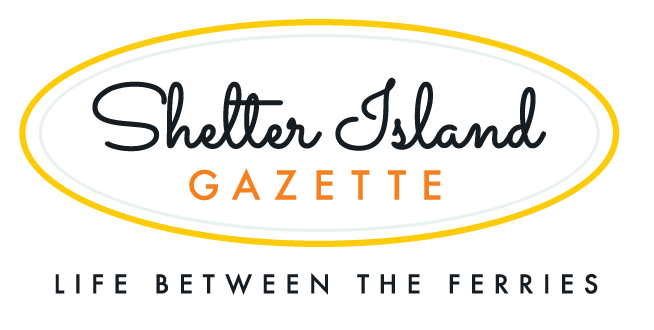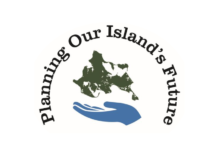Governor Andrew M. Cuomo’s latest mandates for reducing the spread of the novel coronavirus includes a 100 percent workforce reduction in businesses that do not provide essential services. But what are essential services?
The Town of Shelter Island, including the Police and Highway departments, and the Shelter Island Union Free School District (which, in addition to delivering remote instruction also feeds 70 students per day), provide essential services.
A large portion of the staff at these entities are already working from home, or on modified schedules, and will continue to do so. But those workers who are designated as essential, will still be reporting for duty, local officials say.
Our volunteer first responders — who staff our Fire and EMS departments — are also considered essential personnel. They will be reporting for duty, with some modifications as deemed necessary to protect them and members of the public.
[Read more about our local medical resources in this Gazette post]
Food service workers — whether in shops or restaurants — provide essential services. Now that the governor has limited food service to takeout and/or delivery, only those personnel who prepare or deliver food are considered essential.
Crew members at the North Ferry and South Ferry also provide essential services. To protect workers and the public, the two companies are working closely with local officials and have instituted social distancing and other strategies. For example, the South Ferry has online ticketing in place, to reduce interactions between staff and the public. Learn more at southferry.com.
At a meeting Friday of the Town’s emergency response team, Chief of Police James Read said that anyone known to have COVID-19 and is seeking medical support may call the police station to arrange for a ferry pass. This can be placed on the vehicle’s window so that ferry crews do not have to physically interact with anyone in the vehicle. The non-emergency number at the police station is 631-749-600.
At the Recycling Center, the Town has instituted practices designed to limit the spread of the virus, while still enabling residents to get rid of their trash. Suspended until further notice is recycling of plastics and cardboard. And, the Town says that while the Recycling Center remains open daily, “During various times of the day, the center will close temporarily for cleaning”
This means, you may find the entry gate closed. “The cleaning is for your protection and the safety of our workers. Please be patient and the center will re-opened as soon as cleaning has been completed,” the Town said in a news release Friday.
And our post offices will remain open, even though this means residents will have leave their homes to pick up mail. The Town is coordinating volunteers willing to do errands for those who are homebound (which now includes anyone age 70+ according to the governor’s latest initiative).
If you are healthy and want to volunteer, contact Emily Kraus at FITManager@shelterislandtown.us.
Who else is considered an essential worker?
Many other workers also provide essential services. So even as you’re hunkered down in your home, don’t be surprised if you see people driving past on their way to work.
In order to help keep essential service employees on the job, the Town will be offering them free childcare services at the Shelter Island School, Town Supervisor Gerry Siller and School Superintendent Brian Doelger announced Friday.
Here are the guidelines for essential services issued by the state:
1. Essential health care operations including
- research and laboratory services
- hospitals
- walk-in-care health facilities
- veterinary and animal health services
- elder care
- medical wholesale and distribution
- home health care workers or aides
- doctor and dentist offices
- nursing homes, or residential health care facilities or congregate care facilities
- medical supplies and equipment providers
2. Essential infrastructure including
- utilities including power generation, fuel supply and transmission
- public water and wastewater
- telecommunications and data centers
- airports/airlines
- transportation infrastructure such as bus, rail, or for-hire vehicles, garages
3. Essential manufacturing including
- food processing, including all foods and beverages
- chemicals
- medical equipment/instruments
- pharmaceuticals
- safety and sanitary products
- telecommunications
- microelectronics/semi-conductor
- agriculture/farms
- paper products
4. Essential retail including
- grocery stores including all food and beverage stores
- pharmacies
- convenience stores
- farmer’s markets
- gas stations
- restaurants/bars (but only for take-out/delivery)
- hardware and building material stores
5. Essential services including
- trash and recycling collection, processing and disposal
- mail and shipping services
- laundromats/dry cleaning
- building cleaning and maintenance
- child care services
- auto repair
- warehouse/distribution and fulfillment
- funeral homes, crematoriums and cemeteries
- storage for essential businesses
- animal shelters or animal care or management
6. News media
7. Financial Institutions including
- banks
- insurance
- payroll
- accounting
8. Providers of basic necessities to economically disadvantaged populations including
- homeless shelters and congregate care facilities
- food banks
- human services providers whose function includes the direct care of patients in state-licensed or funded voluntary programs; the care, protection, custody and oversight of individuals both in the community and in state-licensed residential facilities; those operating community shelters and other critical human services agencies providing direct care or support
9. Construction including
- skilled trades such as electricians, plumbers
- other related construction firms and professionals for essential infrastructure or for emergency repair and safety purposes
10. Defense
- defense and national security-related operations supporting the U.S. Government or a contractor to the US government
11. Essential services necessary to maintain the safety, sanitation and essential operations of residences or other essential businesses including
- law enforcement
- fire prevention and response
- building code enforcement
- security
- emergency management and response
- building cleaners or janitors
- general maintenance whether employed by the entity directly or a vendor
- automotive repair
- disinfection
- doormen
12. Vendors that provide essential services or products, including logistics and technology support, child care and services needed to ensure the continuing operation of government agencies and provide for the health, safety and welfare of the public including
- logistics
- technology support
- child care programs and services
- government owned or leased buildings
- essential government services
If the function of your business is not listed here, but you believe that it is essential or it is an entity providing essential services or functions, you may request designation as an essential business. Follow this link to make your request.




